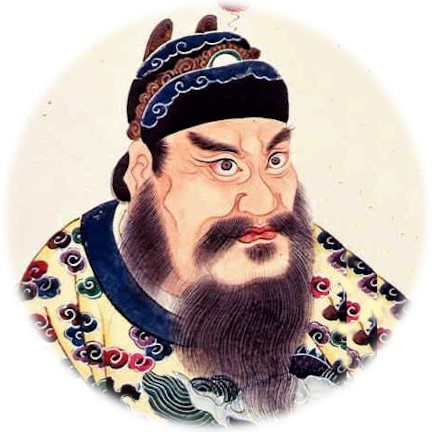Drinks alchemical elixer of Mercury and Jade
09/10/210 BC killed by
The first emperor of a unified China, Qín Shǐ Huáng Dì—allegedly buried in a tomb that contained rivers of flowing mercury on a model of the land he ruled, representative of the rivers of China—was killed by drinking a mercury and powdered jade mixture formulated by Qin alchemists (causing liver failure, mercury poisoning, and brain death) who intended to give him eternal life.
Later in his life, Qin Shi Huang feared death and desperately sought the fabled elixir of life, which would supposedly allow him to live forever. He was obsessed with acquiring immortality and fell prey to many who offered him supposed elixirs.
He visited Zhifu Island three times in order to achieve immortality.
In one case he sent Xu Fu, a Zhifu islander, with ships carrying hundreds of young men and women in search of the mystical Penglai mountain.[63] They were sent to find Anqi Sheng, a 1,000-year-old magician whom Qin Shi Huang had supposedly met in his travels and who had invited him to seek him there.
These people never returned, perhaps because they knew that if they returned without the promised elixir, they would surely be executed. Legends claim that they reached Japan and colonized it. It is also possible that the book burning, a purge on what could be seen as wasteful and useless literature, was, in part, an attempt to focus the minds of the Emperor's best scholars on the alchemical quest. Some of the executed scholars were those who had been unable to offer any evidence of their supernatural schemes. This may have been the ultimate means of testing their abilities: if any of them had magic powers, then they would surely come back to life when they were let out again.
Since the great emperor was afraid of death and "evil spirits", he had workers build a series of tunnels and passageways to each of his over 200 palaces, because traveling unseen would supposedly keep him safe from the evil spirits.
During his fifth tour of Eastern China, the Emperor became seriously ill after he arrived in Pingyuanjin (Pingyuan County, Shandong), and died on 10 September 210 BC (Julian Calendar) at the palace in Shaqiu prefecture (沙丘平台, Shāqiū Píngtái), about two months away by road from the capital Xianyang.
The cause of Qin Shi Huang's death is still largely unknown. Reportedly, he died from Chinese alchemical elixir poisoning due to ingesting mercury pills, made by his alchemists and court physicians, believing it to be an elixir of immortality.
Lattitude: 37.1653° N
Longitude: 116.4341° E
Region: Far East

Modern Day China
Subjects Who or What killed by?
-
Qin Shi Huang (Ying Zheng) King of Qin 247 BC...
Objects To Whom or What was killed by?
-
Mercury (element) (Hg, quicksilver) A heavy, silvery d-block...
Timelines (that include this event)
Events in -210 MORE











